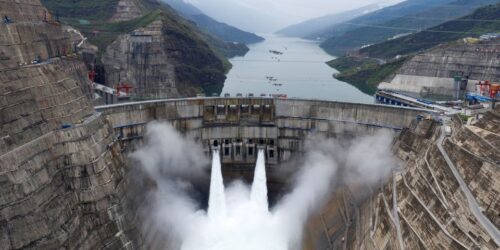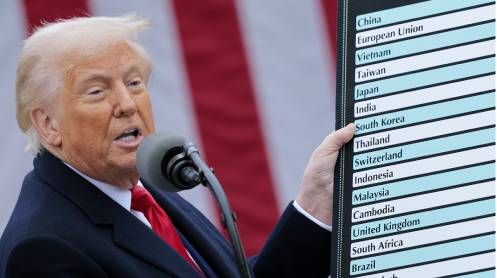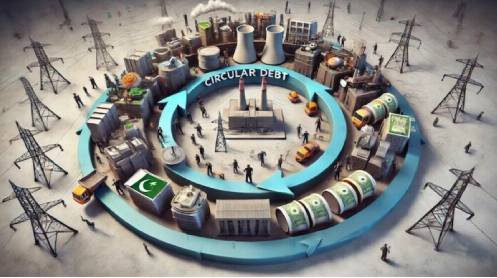As the mercury level drops in the winter season, the demand of electricity and gas increased significantly in Khyber Pakhtunkhwa particularly in hilly areas where people extensively use power and gas appliances for cooking and heating purposes.
The people normally gather around wood fire and stoves while also use electric rods and heaters to keep themselves warm as the fogs and cold weather gripped KP for the last couple of days forcing masses to wear additional warm clothes.
In Chitral, Upper Dir, Lower Dir, Swat, Malakand, Bajaur, Mohmand, Abbottabad, Batagram, Manshera, Buner, Torghar, and Shangla districts, the temperature has dropped to a great extent especially at night in these districts due to which people mostly rely on electrical and LPG appliances for preparation of indoor meal and keeping their rooms warm for children and senior citizens.
The people in hard areas sometime resort to illegal means of electricity connections to use electric appliances for high voltage heaters and rods, which causes low voltage of electricity, tripping and fluctuations besides overloading power distribution system mostly in rural areas of hilly districts, Peshawar‘s peripheries, southern districts including Bannu, Tank, DI Khan and merged areas.
Besides Peshawar and Nowshera‘s rural areas, the Dir Upper‘s Tormang, Paindakhel and Karo Dara are also facing brunt of load shedding where over eight to 10 hours power outages were adversely affecting domestic, commercial and industrial consumers.
As a result of prolonged power outages and unavailability of gas, the people use timber as firewood for cooking and heating purposes in hilly districts where price of 40 kg firewood had swelled to Rs 800 to Rs1,000 making negative effects on the already depleting forest resources in the province.
“Currently we are mostly relying on LPG and wood for preparation of breakfast and lunch for our family especially children due to prolonged gas and electricity load shedding in our village,” said Riazul Haq, a retired PST teacher while talking to APP on Wednesday.
The resident of Nowshera said eight to 10 hours of electricity load shedding and unavailability of gas during breakfast, dinner and lunch time create problems for domestic consumers, he added. The National Water Policy (NWP) 2018 has revealed that Pakistan was heading towards a situation of water shortage due to lack of dams, which may lead to food insecurity for all living creatures in next few years if not addressed on priority basis in the wake of climate change challenges.
The policy disclosed that per capita surface water availability has declined from 5,260 cubic meters per year in 1951 to around 1,000 cubic meters in 2016 and this quantity would likely to further drop to 860 cubic meters by 2025.
It said groundwater situation was expected to further drop in the country mostly in Punjab and Sindh where one million tube-wells were currently pumping about 55 million acres feet (MAF) of underground water for irrigation, which is 20pc more than that available from canals.
“Energy shortfall was one of the major challenges currently being confronted to the coalition government and we need an inexpensive electricity and gas to cater peoples’ and industries’ growing requirements during winter season,” said Ikhtair Wali Khan, PMLN KP Spokesman and Member Provincial Assembly (MPA) while talking to APP.
The coalition government has inherited a feeble economy while the energy import bill has exorbitantly touched $27billion that necessitated expediting work on all under construction dams including Mohmand and Diamir Bhasha and enhancing capacity of existing hydel projects besides development of alternative energy resources.
He said Prime Minister Shehbaz Sharif soon after assuming office visited the under construction dam of Mohmand dam and reviewed the project besides flood damages. Terming Diamir Bhasha and Mohmand dams significant hydropower projects for Pakistan, he said only from the latter about 800 megawatt electricity would be generated while 1.2MAF water would be stored on completion.
“Had Diamir Bhasha and Mohmand dams been constructed in the past, Pakistan would have achieved 50,000MW electricity today,” he said. Around 6,000MW are being obtained from hydel resources having power generation cost of about Rs 63 billion against 50,000 MW potential including 30,000MW in KP.
He said “we need to focus on development of alternate energy resources including hydel, coal, solar, wind, thermal and biomass besides small dams to address the challenge of energy crisis.” Prime Minister Shahbaz Sharif has recently inaugurated a refurbishment project of units 5 and 6 of the Mangla dam hydroelectric power plant that was a major step forward to address the problem of energy shortfall, he added.
Wali said the country’s energy import bill would not have increased to 27billion Dollars today had the PTI government not wasted time on negative politicking and character assassination of the opposition leaders rather focused on construction of new dams and develop alternate energy resources.
He claimed that over 100 mini macro hydel power stations constructed by PTI led government with help of NGOs in northern Khyber Pakhtunkhwa were either destroyed or damaged by the recent floods due to improper selection of sites and planning.
Ikhtair Wali while terming the recent visit of Minister of State for Petroleum, Dr Musadik Malik to Russia was highly successful, said that Moscow would provide crude and refined oil besides diesel to energy starved Pakistan at a discounted rate.
He welcomed initiation of negotiations with Russians private companies for procurement of Liquefied Natural Gas (LNG) and long term contracts with public sector companies of Russia to get LNG from their new plants.
Wali said fruitful discussions were held on gas pipeline projects including establishing of Pakistan Stream Gas Pipeline (PSGP), commonly known North-South (Lahore-Karachi) Gas Pipeline, and another ‘big gas pipeline’ to get the commodity from Russian hydrocarbon deposits on discounted rates for domestic and industrial consumption.
PMLN leader said an inter-governmental delegation of Russia to be headed by its Energy Minister would visit Pakistan by January next month to make progress on oil and gas sale-purchase agreements.
Gas companies were directed by the government to ensure gas supply, especially during ‘breakfast, lunch and dinner’ preparation timings i.e. 6 to 9 am, 12 to 2 pm and 6 to 9 pm to facilitate domestic consumers.
The coalition government was providing extra gas to consumers as compared to last year and was monitoring its supply situation regularly. He maintained that the gas companies were providing more than 20,000 million tons Liquefied Petroleum Gas (LPG) per month in the areas where gas-pressure issue and shortage prevailed to bridge gas demand and supply gap.
He said Iran had also announced to give LPG worth two million Pounds to Pakistan for which all formalities were completed and the additional LPG would help ensure better gas supply to domestic consumers in December and January.
These projects, he said, would significantly help provide affordable gas and electricity to consumers on completion besides promote industrialization and infant industries in KP.





